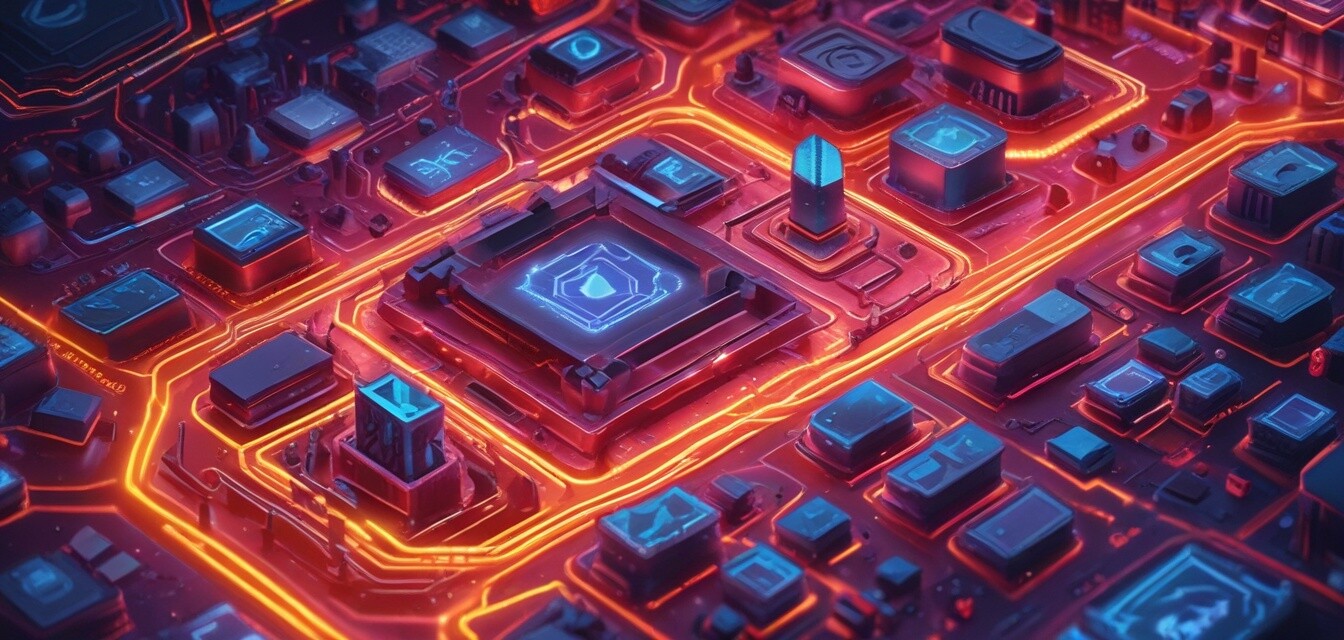
How Blockchain is Changing Gaming
Key Takeaways
- Blockchain technology offers transparency and security in gaming transactions.
- It enables true ownership of in-game assets through NFTs.
- Blockchain-based games are fostering new economic models.
- Decentralized gaming platforms can reduce the control of publishers.
- Potential for enhanced player engagement and community building.
As gaming technology evolves, one of the most groundbreaking innovations is the application of blockchain technology. This article will explore how blockchain is transforming the gaming industry, creating new opportunities for gamers and developers alike.
The basics of blockchain in gaming
Blockchain is a decentralized ledger that records transactions across many computers. For the gaming industry, this means:
- Transparency: Every transaction can be verified, ensuring authenticity.
- Security: Reduces fraud and unauthorized transactions.
- Ownership: Players can truly own in-game assets, thanks to non-fungible tokens (NFTs).
Understanding NFTs in gaming
Non-fungible tokens are unique digital assets verified using blockchain technology. They provide a way for players to own and trade in-game items or characters. This opens up markets where players can:
- Trade items across different games.
- Sell rare in-game assets for real money.
- Participate in a player-driven economy.
How blockchain is enhancing gaming experiences
Blockchain technology brings several advancements that can significantly enhance gaming experiences:
| Feature | Description |
|---|---|
| Decentralization | Removes the middleman, giving power back to gamers. |
| Verifiable Rarity | In-game items can be verified for their rarity and value. |
| Cross-Platform Trading | Allows trading of assets between games and across platforms. |
| Community Governance | Players can have a say in the game's development and policies. |
Examples of blockchain-based games
There are several games leading the way in utilizing blockchain technology. Some notable mentions include:
- Games that use NFTs to verify in-game items.
- Decentralized finance (DeFi) games where players can earn cryptocurrency.
- Marketplaces for buying and selling in-game assets using blockchain.
The future of blockchain in gaming
The potential for blockchain in gaming continues to grow. Here are some anticipated advancements:
- Increased scalability: As more players join, games will likely scale better with blockchain integration.
- Advanced virtual economies: More complex systems for trade and ownership will emerge.
- Continued innovation: New genres and game mechanics will be developed.
- Mass adoption: More mainstream games may incorporate blockchain technologies.
Pros
- True ownership of in-game assets creates player trust.
- Enhanced security for transactions.
- Opportunities for gamers to earn income.
- Decentralized governance ensures community input.
Cons
- Market volatility can affect the value of in-game assets.
- Scalability issues during peak times.
- Potential for exploitation in terms of pay-to-win models.
Why gamers should pay attention
With the rapid evolution of technology, it's important for gamers to stay informed. Understanding how blockchain affects gaming could provide advantages like:
- Identifying valuable NFTs before they become mainstream.
- Engaging with new gaming communities that prioritize player collaboration.
- Adapting to new economic models in gaming.
As a hub for learning about these advancements, our News in Gaming Technology section will keep you updated with the latest trends that could reshape your gaming experience.
"The future is blockchain in gaming. It’s sure to redefine how we interact with games forever."
Conclusion
Blockchain technology represents a pivotal change in the gaming industry. By providing transparency, security, and ownership, it creates opportunities for gamers and developers to collaborate in unprecedented ways. Keeping abreast of these developments will be crucial for anyone looking to benefit from the future of gaming.
